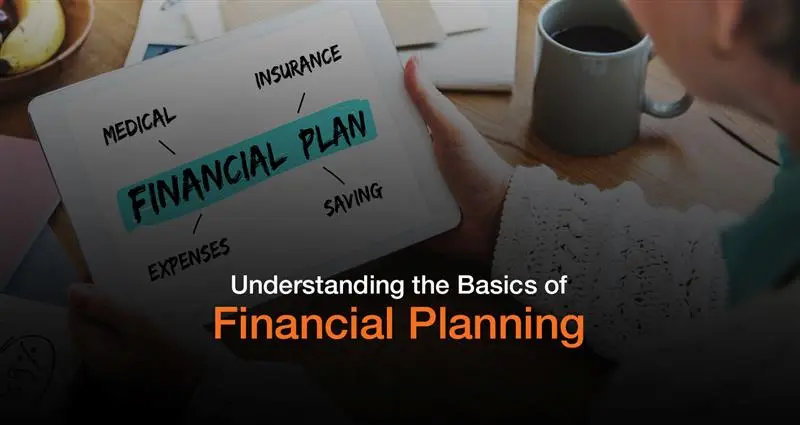If you’re a student, managing money might often feel like walking on a tightrope. Between tuition, books, food, rent, and social activities, your expenses can add up fast. It’s easy to lose track of where your money goes — and that’s exactly why you need solid financial planning tips for students.
The good news is that financial planning doesn’t have to be complicated. With a few practical habits and the right mindset, you can save money, avoid debt, and even start setting up your future financial success while still in school. Let’s dive into this detailed guide that breaks everything down step-by-step.
1. Understand the Basics of Financial Planning

Before you start budgeting or saving, it’s important to understand what financial planning means. Simply put, it’s about managing your income, expenses, and savings so that you can meet your needs today and prepare for tomorrow.
For students, this means:
- Learning how to handle limited money wisely.
- Setting short-term goals (like paying for books).
- Planning for long-term stability (like avoiding debt).
Having a plan makes you more confident and reduces financial stress — two things every student can benefit from.
2. Create a Realistic Budget
This is the foundation of every good financial plan. Without a budget, it’s nearly impossible to track your spending habits or identify where your money is going.
Here’s how to create a student-friendly budget:
- Step 1: List your income sources. Include allowance, part-time job income, scholarships, or financial aid.
- Step 2: Write down all your expenses. Divide them into fixed (rent, tuition, subscriptions) and variable (food, entertainment, travel).
- Step 3: Track and adjust. Use apps like Mint, YNAB (You Need A Budget), or even a simple spreadsheet to track your spending.
This is one of the most essential financial planning tips for students because once you understand your money flow, you’ll naturally become more responsible with it.
3. Separate Needs from Wants
One of the hardest parts of student life is resisting temptation — a new phone, weekend trips, or frequent takeout. The key to financial success is differentiating between what’s necessary and what’s optional.
- Needs: Rent, food, transportation, books, utilities
- Wants: Fancy coffee, eating out daily, impulse shopping
Ask yourself before buying something:
“Is this something I need, or something I just want right now?”
Mastering this habit can save you hundreds over the semester.
4. Build a Small Emergency Fund

Emergencies happen — your laptop might break, or you might need unexpected medical help. Instead of panicking or borrowing, it’s better to have a small safety net ready.
Start by saving even a small amount each month — $10, $20, or more if possible. Over time, this adds up. The goal isn’t to save a huge amount right away, but to create a habit of saving.
A reliable financial planning tip for students is to keep your emergency fund separate from your spending account so you’re not tempted to use it for everyday expenses.
5. Avoid Debt and Credit Card Traps
Credit cards can look appealing, but they can quickly lead you into trouble if you’re not careful. Many students fall into the trap of spending beyond their means because “it’s just credit.”
Here’s what you should do:
- Use your credit card only for small, manageable expenses.
- Always pay off your balance in full each month.
- Avoid payday loans or high-interest debts.
Building good credit early can help you later in life (for renting apartments, buying a car, etc.), but it’s important to do it responsibly.
You may also like to read this:
Best Debt Relief Programs For Students – 2025 Guide
How To Get Student Loan Forgiveness Quickly And Easily
Tips To Reduce Educational Debt Fast – Smart Strategies
Student Debt Consolidation Explained: Complete 2025 Guide
Learn About Government Debt Relief Help For Students Today
6. Take Advantage of Student Discounts and Freebies
Being a student comes with perks — take full advantage of them! Many companies offer exclusive student discounts on food, travel, software, clothing, and entertainment.
Here are a few examples:
- Technology: Apple, Microsoft, and Adobe often give student deals.
- Streaming: Spotify, Hulu, and Amazon Prime have student packages.
- Food and retail: Restaurants, clothing stores, and public transport may offer discounts with your student ID.
Before you buy anything, always check if there’s a student discount available. Over time, these savings make a big difference.
7. Find Smart Ways to Earn Money
Even a part-time job or side hustle can ease financial stress. Many students earn extra income through flexible options like freelancing, tutoring, content writing, or on-campus jobs.
Some ideas include:
- Online tutoring: Teach subjects you’re good at.
- Freelance writing/design: Great for creative students.
- Campus jobs: Libraries, administrative offices, or student centers.
- Selling used items: Books, clothes, or notes.
The extra money you earn can help cover your bills, add to savings, or reduce your student loan burden.
8. Learn the Art of Saving
Saving doesn’t mean you have to stop enjoying life — it means learning to enjoy it more responsibly.
Here are some easy ways to start saving as a student:
- Cook at home instead of eating out.
- Buy used or digital textbooks.
- Walk or cycle instead of using taxis.
- Share streaming services with friends or family.
Remember, small savings add up over time. You might not see the difference right away, but after a few months, you’ll notice how much more secure you feel.
9. Educate Yourself About Finances
One of the best financial planning tips for students is to actually learn about money.
There are tons of free resources that teach personal finance in simple terms:
- YouTube channels like Graham Stephan or The Financial Diet
- Free courses on Coursera and edX
- Podcasts like Planet Money or The Dave Ramsey Show
The more you know, the better your financial decisions will be — now and in the future.
10. Plan for the Future
Even if graduation seems far away, it’s smart to think long-term. Financial planning is about setting yourself up for stability and freedom.
Here’s what you can do:
- Start saving for major goals like travel, higher studies, or investments.
- Open a savings or investment account (even if it’s small).
- Learn about insurance and retirement plans early — knowledge is power.
Taking small steps today can save you from financial stress later.
Conclusion
Being a student is the perfect time to build strong money habits. By following these financial planning tips for students, you’ll not only manage your current expenses but also create a foundation for long-term success. Remember, financial freedom doesn’t come from earning more — it starts with managing what you already have wisely.
Start today. Track your spending, set goals, and take control of your money. You’ll thank yourself later.
FAQs
1. Why should students care about financial planning?
Because learning how to manage money early helps prevent debt, build savings, and create a stress-free financial future.
2. What’s the best way for students to save money?
Create a budget, limit unnecessary expenses, and save at least 10% of your income every month.
3. Are credit cards a good idea for students?
Yes, but only if used responsibly. Always pay your bills on time and never spend more than you can repay.
4. How can I budget if my income is irregular?
Base your spending on your lowest expected income, and treat any extra money as savings.
5. Can students start investing?
Absolutely! You can start small with investment apps or mutual funds designed for beginners. The earlier you start, the better.





